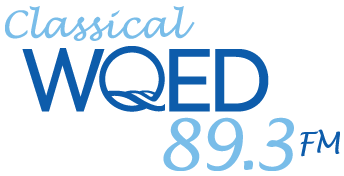Implementing Effective Anti-Plagiarism Strategies Beyond Software Solutions
by Alexandra Thompson
Within the academic sphere, the term "plagiarism" evokes a sense of unease among diligent students. So, what precisely does plagiarism entail? In simple terms, it involves presenting another person's work as if it were your own. Beyond being an ethical gray area, this breach of academic integrity can carry significant repercussions, casting shadows over the entirety of your educational path. While common plagiarism detection software are valuable tools, they come with limitations. Let's delve into the nuances of plagiarism and explore effective strategies that go beyond relying solely on software solutions.
Understanding Plagiarism
Plagiarism exhibits a range of complexities, involving diverse forms of academic misconduct. Common manifestations include outright copying, rephrasing without appropriate attribution, and instances of self-plagiarism. It's essential to recognize these nuances to avoid unintentional lapses in academic honesty.
The repercussions of plagiarism extend beyond the immediate assignment. Academic penalties, ranging from failing grades to expulsion, and the potential impact on future opportunities, including job prospects and graduate school admissions, underscore the seriousness of this transgression.
Effective Anti-Plagiarism Strategies
Educational Approach
To combat plagiarism, a proactive educational approach is crucial. Grasping the intricacies of plagiarism and recognizing the significance of accurate citation serves as the initial defense against academic misconduct. Workshops and training sessions equip students with the essential tools to skillfully navigate the complexities of academic writing. Incorporating interactive learning activities not only reinforces these concepts but also makes the learning process engaging and memorable.
| Advantages | Characteristics |
|---|---|
| 1. Promotes Understanding | In-depth exploration of plagiarism nuances and proper citation. |
| 2. Engages Students | Workshops and interactive activities make learning enjoyable. |
| 3. Builds Lifelong Skills | Equips students with critical writing and citation skills. |
Institutional Policies and Cultivating Originality
Institutions play a pivotal role in fostering a culture of academic integrity. Clear and strict policies, consistently enforced, act as a deterrent. Exploring case studies of successful implementations showcases real-world examples of how institutions are tackling plagiarism effectively. Fostering critical thinking through creative assignments encourages students to think beyond the confines of rote memorization, reducing the temptation to resort to plagiarism.
| Advantages | Characteristics |
|---|---|
| 1. Deters Plagiarism | Strict policies act as a deterrent to academic misconduct. |
| 2. Showcases Success Stories | Case studies highlight effective implementation. |
| 3. Encourages Critical Thinking | Creative assignments promote original thought. |
Building a Culture of Integrity: Promoting Academic Integrity
The responsibility of promoting academic integrity extends beyond institutional policies. Faculty and administration play a crucial role in setting the tone. By actively emphasizing the importance of original work and upholding stringent standards, they contribute to a culture where integrity is non-negotiable. However, the onus is not solely on educators. Student involvement is equally vital. Understanding the consequences of plagiarism and actively participating in maintaining a culture of integrity empowers students to be stewards of their academic community.
Moreover, fostering a culture of integrity necessitates a collaborative effort between faculty, administration, and students. Encouraging open dialogues about the ethical implications of plagiarism and promoting a shared commitment to academic honesty creates a foundation for a robust culture of integrity. When students actively participate in maintaining these values, they not only uphold the integrity of their academic community but also contribute to a learning environment that values and celebrates the authenticity of each individual's work. In this collaborative endeavor, students become integral stewards, collectively shaping an educational culture rooted in honesty and originality.
Technology and Innovation
Incorporating Technology Creatively
While software solutions are a cornerstone in the fight against plagiarism, technology can be harnessed in more creative ways. Collaborative projects, multimedia assignments, and online discussions foster an environment where the emphasis is on individual interpretation and application of knowledge. These methods not only discourage plagiarism but also nurture a deeper understanding of the subject matter.
Digital Literacy Initiatives
In an age dominated by information, digital literacy is paramount. Educating students on how to navigate the vast sea of online resources responsibly is a proactive approach to plagiarism prevention. Teaching them to discern credible sources, evaluate information critically, and cite electronic resources appropriately enhances their digital literacy skills.
In conclusion, effective anti-plagiarism strategies extend far beyond the realm of plagiarism detection software. A multifaceted approach, encompassing education, institutional policies, and innovative technology usage, is key to fostering a culture of academic integrity. By embracing these strategies, students not only safeguard their academic standing but also contribute to a community where originality and honesty are celebrated. In the pursuit of knowledge, let us champion integrity as the cornerstone of our academic endeavors.









